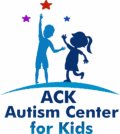Introduction
Autism Spectrum Disorder (ASD) presents unique challenges that affect individuals in various ways, particularly in social interactions, communication, and emotional regulation. Families often seek specialized interventions to help their loved ones thrive. Two common forms of support are autistic support groups and social skills groups. While both serve essential roles in fostering growth and confidence, they differ in their approach, goals, and structure.
This article explores the distinctions between autistic support groups and social skills groups, their respective benefits, and how the Autism Center for Kids, led by Amir Haimove, provides specialized programs to cater to the needs of individuals with autism and their families.

Understanding Autistic Support Groups
What Are Autistic Support Groups?
Autistic support groups are designed to provide a safe, understanding environment where individuals with autism and their families can share experiences, challenges, and successes. These groups aim to foster a sense of belonging, reduce isolation, and offer emotional and practical support.
Key Features of Autistic Support Groups:
- Peer Support: Members share personal experiences and coping strategies.
- Emotional Guidance: Helps individuals and families navigate the emotional aspects of autism.
- Information Sharing: Provides resources on therapies, educational strategies, and lifestyle adjustments.
- Parental Involvement: Many support groups include parents and caregivers, offering guidance on raising a child with autism.
- Less Structured: Conversations flow based on members’ concerns and needs.
Benefits of Autistic Support Groups:
- Emotional Relief: Members realize they are not alone in their journey.
- Increased Self-Advocacy: Encourages individuals with autism to express their needs.
- Community Connection: Builds long-term friendships with people who understand.
- Resource Access: Families gain insight into therapies, educational programs, and support services.
Understanding Social Skills Groups
What Are Social Skills Groups?
Social skills groups focus on teaching and practicing social interactions in a structured setting. These groups help individuals with autism develop the necessary skills to navigate social situations in school, the workplace, and daily life.
Key Features of Social Skills Groups:
- Guided Instruction: Led by therapists or trained professionals.
- Role-Playing Exercises: Simulations of real-world interactions to build confidence.
- Explicit Social Rules: Helps participants understand unspoken social norms.
- Repetitive Practice: Encourages skill retention through repetition.
- Small Group Settings: Facilitates individualized attention and peer interaction.
Benefits of Social Skills Groups:
- Improved Communication: Helps children and adults express themselves clearly.
- Better Peer Interactions: Encourages making friends and maintaining relationships.
- Increased Confidence: Reduces anxiety in social settings.
- Enhanced Problem-Solving Skills: Teaches conflict resolution and emotional regulation.
Key Differences Between Autistic Support Groups and Social Skills Groups
| Feature | Autistic Support Groups | Social Skills Groups |
|---|---|---|
| Goal | Emotional support and shared experiences | Skill-building and social development |
| Participants | Individuals with autism, parents, caregivers | Individuals with autism looking to improve social skills |
| Structure | Less structured, conversation-based | Highly structured with planned activities |
| Facilitation | Often led by experienced peers or counselors | Led by trained therapists or specialists |
| Main Focus | Emotional well-being, advocacy, community | Social interaction, role-playing, communication skills |
Both groups play an essential role in an individual’s development. Many families opt for a combination of both, depending on their specific needs.
How Autism Center for Kids by Amir Haimove Can Help
The Autism Center for Kids, led by Amir Haimove, specializes in providing tailored programs that address the diverse needs of individuals with autism. By offering both autistic support groups and social skills groups, the center ensures that families receive comprehensive assistance.
1. Autistic Support Groups at Autism Center for Kids
- Parental Support Sessions: Helps parents navigate the challenges of raising a child with autism.
- Teen and Adult Peer Groups: Encourages social connection and independence.
- Workshops and Resources: Provides tools for coping with daily challenges.
- Safe Space: A non-judgmental environment where individuals feel heard and understood.
2. Social Skills Groups at Autism Center for Kids
- Tailored Social Skills Programs: Age-appropriate training for children, teens, and adults.
- CBT-Based Techniques: Uses Cognitive Behavioral Therapy (CBT) principles to address social anxiety.
- Role-Playing and Real-Life Scenarios: Helps individuals apply skills in everyday situations.
- Expert-Led Sessions: Conducted by trained therapists specializing in autism interventions.
3. Unique Approaches at Autism Center for Kids
- The Miller Method: A developmental approach that fosters communication and adaptive behaviors.
- Floortime Therapy: Encourages social engagement through child-led interactions.
- Play Therapy: Uses structured play activities to improve social and emotional skills.
Choosing the Right Group for Your Needs
Deciding between an autistic support group and a social skills group depends on your child’s or family’s specific needs:
- If you’re looking for emotional support, shared experiences, and community, an autistic support group is ideal.
- If your child or teen struggles with social interaction, communication, or making friends, a social skills group is a better fit.
Many individuals benefit from both types of groups as part of a well-rounded therapy plan.
Conclusion
Both autistic support groups and social skills groups provide essential benefits to individuals with autism and their families. While support groups focus on emotional well-being and community-building, social skills groups emphasize structured learning and real-world interaction.
The Autism Center for Kids by Amir Haimove offers expertly designed programs that cater to both needs. Whether you are looking for a support network or structured social skills training, the center provides tailored solutions to empower individuals with autism and their families.
If you’re interested in enrolling in one of these programs, reach out to the Autism Center for Kids today to learn more about their services and how they can support your journey.
Call to Action
Error: Contact form not found.
Let us help your child grow, connect, and thrive!
Discover more from Autism Services and therapy for Kids by counseling
Subscribe to get the latest posts sent to your email.


You must be logged in to post a comment.